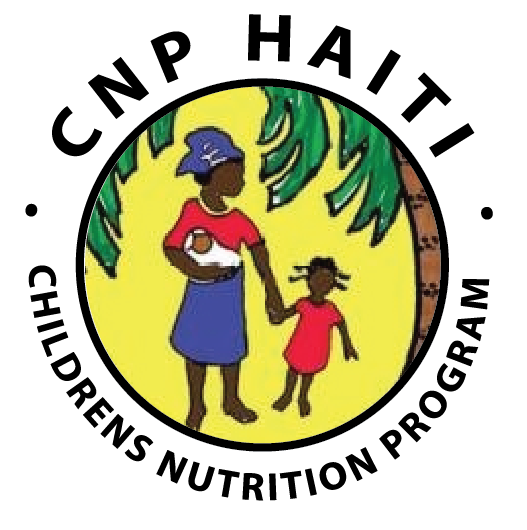Vaccines: Breaking the Poverty-Disease Cycle
A special blog entry for Immunization Week 2015.
This is a perspective from the Children’s Nutrition Program of Haiti, where the reality in the field is that many children, and adults, are dying or being disabled from diseases which could easily be prevented by vaccination.
Lately the media has covered the Vaccine Controversy and there has been much debate surrounding their benefits, their potential for harm and the right for individual choice. This is a valid debate, but in Haiti vaccination is also about basic public policy issues of alleviating and reducing poverty.
People in developing countries are more likely to contract preventable diseases
Poverty and the social conditions arising from poverty increase susceptibility to disease. Poverty gives rise to unhygienic environments resulting from poor housing, crowding, limited access to water and a lack of sanitation. Poverty also limits an individual’s access to nutritious foods and healthcare, which increases their susceptibility to infections and the risk of dying from infectious disease. (London, 2005). In Haiti, death from infectious disease is more likely to occur in part because of the serious lack of health infrastructure. Only half of the population has access to health care because of poverty and a shortage of health care professionals (1 physician and 1.8 nurses per 10,000 population). As a result, only one fourth of seriously ill people are taken to a health facility (Medscape, 2015).
High medical costs exacerbate poverty
The high cost of medicines can force many families into poverty, and lead to further impoverishment of those who are already poor, a situation known as the ‘the medical poverty trap’. Global estimates of the number of people who suffer financial catastrophe (defined as paying more than 40% of household income directly on health care after basic needs have been met) show than in some developing countries up to 11% of people suffer this type of severe financial hardship each year and up to 5% are forced into long term poverty as a result (WHO, 2010).
Good health is essential for economic productivity
Whilst poor health can impoverish families, good health is essential to a family’s economic productivity, particularly among the poor who have few assets to shield them against the costs of illness and poverty. Disabilities compromise the labor force and increase the ratio of dependents to productive adults. The illness or death of an adult breadwinner can trigger a vicious cycle of impoverishment, which is difficult to break. In addition, as education facilitates the gain of meaningful employment, children free from illness are able to attend school and increase their chances of finding better-paid work in adulthood which helps break the cycle of poverty (Whitehead, Dahlgren & Evans, 2004).
Vaccines can help break the poverty cycle
Vaccines exist for many of the diseases that drive families into poverty: measles, polio, tuberculosis, diphtheria, tetanus, pertussis, hepatitis B, pneumonia, and meningitis. All these diseases can kill or seriously disable, making individuals vulnerable to poverty or further exacerbating existing poverty. The unpredictability of immunizable diseases means that families have no way of knowing if they will be affected. If families were to be immunized, many would not be affected, and the risk of disease and impoverishment could be avoided. Lack of access and availability mean that the poor often do not have the same opportunities as the non-poor to benefit from the protection of vaccines. Their capabilities are lowered by poor health and they have a reduced ability to benefit from capacity building educational opportunities that could extract them from poverty. (Fairburn et al., undated).
It’s not just statistics
We met little Joe during a visit to the Petit Goave inpatient facility, where CNP refers children suffering from severe acute malnutrition for care. We were there to drop off another small baby and her mother and noticed Joe because he was sitting alone, unusual as the facility requires that children be accompanied by a parent or adult. Little Joe, who was almost three, had been at the centre for almost five months, despite having been rehabilitated some months before. Joe was developmentally delayed, likely as a consequence of the malnutrition he’d experienced. His limbs were also wasted from the effects of polio, an infectious disease that can cause muscle weakness resulting in paralysis. Joe was alone because his parents had abandoned him at the centre. The staff tell us it’s likely the parents were overwhelmed by the prospect of caring for a disabled child and the expensive medical care associated with his disease. It’s likely Joe’s parents felt forced to make a choice between caring for his needs and those of their other children. It's all the more heart breaking when you know that polio is a disease that has been eradicated in most of the world thanks to mass vaccination campaigns. An oral vaccine, consisting of a few drops given to children in three doses, provides 95% of those vaccinated with complete protection against the disease.
References
Fairbank, A., Makinen, M., Schott, W., Sakagawa, B., undated, Poverty Reduction and Immunizations: Considering immunizations in the context of debt relief for poor countries’, accessed at http://www.path.org/files/PovertyReductionImmunizations-Abt.pdf
London, A., 2005, ‘Justice and the Human Development Approach to International Research’, Hastings Centre Report, volume 35, no. 1.
Medscape, 2015, Lessons Learned During Public Health Response to Cholera Epidemic in Haiti and the Dominican Republic, accessed at: http://www.medscape.com/viewarticle/754871_2
Whitehead, M., Dahlgren, G. & Evans, T., 2004, ‘Equity and Health Sector Reforms: Can Low-Income Countries Escape the Medical Poverty Trap?’, The Lancet, volume 358.
World Health Organisation, 2010, The World Health Report, Health Systems Financing: The Path to Universal Coverage, World Health Organisation, Geneva, Switerland.

